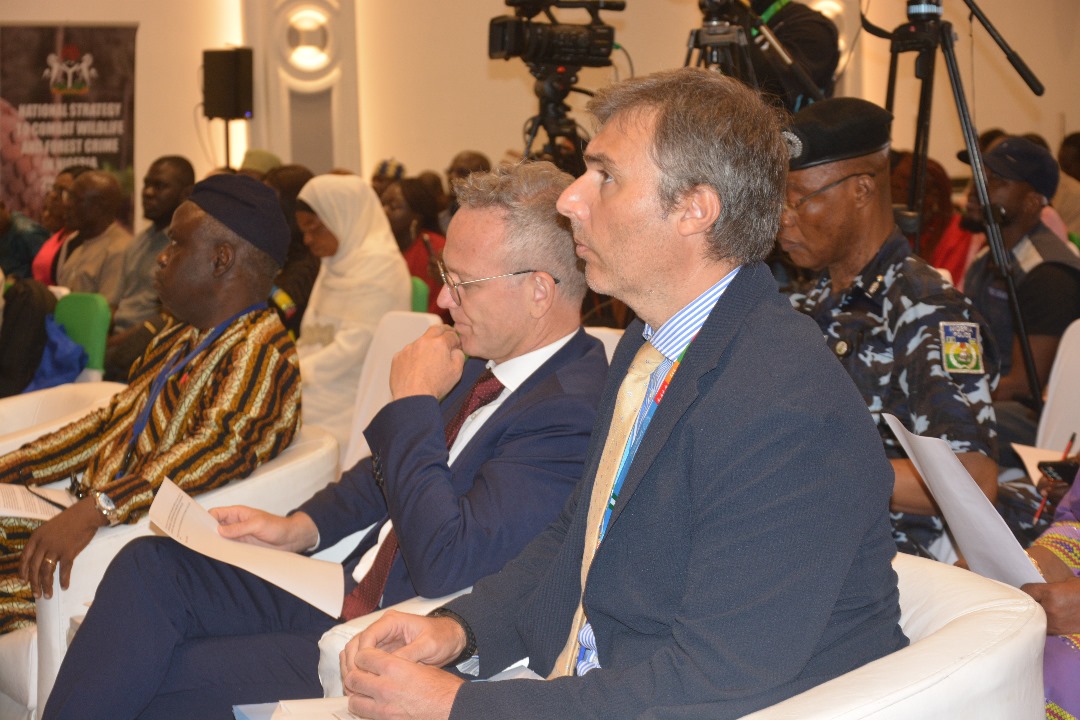Nigeria now major hub for trafficking illicit wildlife products – UN
The United Nations Office on Drugs and Crime (UNODC) has said Nigeria is become a major transit hub for trafficking illicit wildlife. UNODC Officer-in-Charge, Mr. Danilo Campisi, disclosed this at the launch of the International Consortium on Combating Wildlife Crime (ICCWC) Wildlife and Forest Crime Analytic Toolkit in Abuja on Friday. “Wildlife and forest crime […]

img 20240920 wa0450
The United Nations Office on Drugs and Crime (UNODC) has said Nigeria is become a major transit hub for trafficking illicit wildlife.
UNODC Officer-in-Charge, Mr. Danilo Campisi, disclosed this at the launch of the International Consortium on Combating Wildlife Crime (ICCWC) Wildlife and Forest Crime Analytic Toolkit in Abuja on Friday.
“Wildlife and forest crime is a serious and escalating issue. Recently, Nigeria has become a major transit hub for trafficking illicit wildlife products, including pangolin scales, ivory, and other protected species from Eastern and Central Africa.
“These products enter the country through porous land borders and exploit Nigeria’s advanced sea and airport infrastructure,” he said.
- North West has highest Still birth rate in Nigeria – Report
- Minister urges regulatory law for fertility, reproductive health practice in Nigeria
The ICCWC Wildlife and Forest Crime Analytic Toolkit enables a comprehensive assessment of a country’s preventive, law enforcement, prosecutorial, and judicial responses to wildlife and forest crime.
It reviews data systems, processes, and wildlife demand, identifying strengths and gaps in current responses.
The Toolkit also provides short and long-term recommendations to address key challenges, offering an evidence base for authorities and ICCWC to enhance national responses to wildlife and forest crime.
The report outlines 33 recommendations to strengthen Nigeria’s wildlife criminal justice system.
Key recommendations include supporting the Endangered Species Protection and Conservation Bill 2024, scaling up joint wildlife investigations through a Joint Investigations Team, and establishing a wildlife crime unit in the Directorate of Public Prosecutions of the Federation.
It also recommended the enhancing of wildlife forensics capacity building efforts and the provision of operational and technical assistance tools and skills for frontline enforcement authorities
Campisi emphasized the urgency of implementing the Toolkit’s recommendations, citing key data and research trends.
The 2023 Organised Crime Threat Assessment for Nigeria and the 2024 World Wildlife Crime Report both highlight the severe depletion of Rosewood in Nigeria, noting that the CITES ban on rosewood exports may have come just in time to prevent the species’ extinction.
To combat these challenges, the Government of Nigeria requested support from the ICCWC in 2019 to implement the Wildlife and Forest Crime Analytic Toolkit and the ICCWC Indicator Framework for Combating Wildlife and Forest Crime.
Nigeria’s Minister of Environment, Balarabe Abass Lawal in his keynote address at the event, lamented that the country was witnessing an alarming increase in wildlife crime.
“These crimes not only threaten our environment but also undermine the rule of law, fuel corruption and deprive communities of their livelihoods, undermine public health and national security,” the minister said.
He noted that while Nigeria had taken several proactive steps to combat wildlife crime, much more needed to be done as wildlife crime is a complex transnational issue that requires a multifaceted approach.
He reiterated the commitment of the Government of Nigeria to implement the recommendations in partnership with international and domestic stakeholders.
